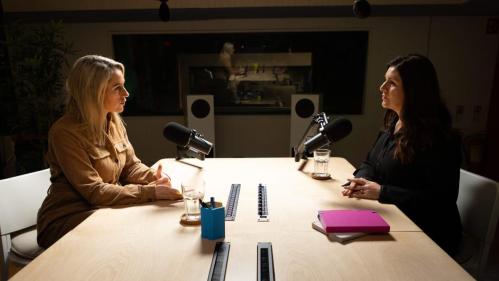When people start talking books, do you ever start to feel a little...well, not very well-read? Whether it's people on about the latest releases over dinner or even something as simple as totally flunking the literature round in the local pub quiz (we've all been there) sometimes we feel it'd be nice to bulk up our reading list a little.
It can look very time consuming, when you're staring down at your massive pile of books, especially if you're hoping to up your classics game - Jane Eyre and Anna Karenina could feasibly knock someone out with the weight of them. But that doesn't mean you can't still hit some of the major classics of our time! We've compiled a list of lots of short classics, 200 pages or less, that you can make your way through very easily - and ace your next pub quiz!
The Great Gatsby – F. Scott Fitzgerald (200 pages)
This classic novel is a great one to be able to reference because it’s one that literally everyone has read -or at least pretends they have. Focusing on the Jazz Age in America, it’s a story about materialism, class and lost dreams in one of America’s most drink and sex-obsessed eras. Spectacularly wealthy Jay Gatsby pursues unattainable and beautiful Daisy – but will be he be successful in his journey for love?
At a short 200 pages, this is actually the longest title on the list, but it’s still a pretty quick read! Plus, it’s a true 20th century classic, making it a great option if you want to bulk up your reading list.
Animal Farm – George Orwell (141 pages)
Another iconic short novel of the 20th century (and novelist), Animal Farm is a great Orwell to start off with as it really shows of his tone and preferred themes – injustice, surveillance, paranoia and tyranny. It tells the story of mistreated farm animals who rise up to overthrow their farmer in a bid to make their own, more just society. But the animal’s newfound freedom is quickly curtailed by rules and hierarchies that begin to emerge from the dust of their uprising.
In 141 pages, take a walk through some of the sharpest criticism of totalitarianism known to man, told in a dark, fairytale-like manner. Plus, you’ll finally know what everyone means when they say ‘Orwellian’!
Of Mice and Men – John Steinbeck (103 pages)
A super short, and very gripping read, you may have studied this story in school and been hooked – of you didn’t now is your chance to read a hard hitting story of friendship, loneliness and people’s dark sides. George and Lennie, simple farm hands with a close bond, dream of a life beyond their hard jobs on the ranch in California. But when things on the farm begin to turn against them and a dark misunderstanding brings a twist in the tale, the story barrels uncontrollably to a darker and darker ending.
One of America’s most widely read novels, you can absolutely get through this in an afternoon. Written in an almost play-like format, it moves quickly and is a thoroughly gripping story.
The Yellow Wallpaper – Charlotte Perkins Gilman (64 pages)
If you’re into your feminist reads, Charlotte Perkins Gilman’s shirt story ‘The Yellow Wallpaper’ is a great place to start. A short story rather than a full novel, this claustrophobic tale follows a woman recovering from an illness in a summer house with her husband, a doctor, to get away from the bustle of city life. However, her health and mental state seems to deteriorate further instead of getting better…is it all in her head, or could her husband’s mysterious friend The Doctor?
A Room of One’s Own – Virginia Woolf (112 pages)
Another feminist text that makes up the staples of the feminist canon, Virginia Woolf’s collection of essays explores women as writers and the female characters they create in fiction. It’s all about carving out artistic spaces for women in what was a male-dominated field in the early 20th century.
The Crucible – Arthur Miller (143 pages)
Are witches, Halloween and theatre some of your favourite things? Then the Crucible is absolutely the book for you. Set in New England during the time of the witch trials, Arthur Miller’s imagining of the historical event is a tense and turbulent story, as we attempt to figure out what is true and what are lies, are there real witches among the perpetrators or is it strict religious values whipped up into a frenzy? Featuring an unforgettable cast characters from the accused women to the man who judges them, this searing drama will stay with you for years after reading.
Wide Sargasso Sea – Jean Rhys (176 pages)
This is one that will only make sense if you’ve already read Jane Eyre, but it’s honestly one of my favourite modern classics, purely for the interesting angle and social commentary. The story follows Antoinette ‘Bertha’ Mason, the woman who eventually becomes Mr. Rochester’s ‘crazy’ wife that he locks up in the attic in Jane Eyre. But this time, the story is told from her perspective and we take the journey with her as she struggles through life in the colonies before being transported to a strange land in Britain where no one understands her and her new husband is cruel. Although we know her ending we hope for more for her, and this retelling delivers.
A Streetcar Named Desire – Tennessee Williams (107 pages)
Another play, this Pulitzer Prize winning drama is atmospheric and striking, as we follow faded and promiscuous Blanche DuBois as she is pushed over the edge by her sexy and brutal brother-in-law, Stanley Kowalski. Set in New Orleans, Blanche comes to stay with her sister and her aggressive husband and soon the tiny house becomes a tinderbox just waiting to be lit on fire by the tension and build up of secrets and things left unsaid about their dark and tumultuous pasts.
Fahrenheit 451 – Ray Bradbury (194 pages)
Another book that focuses on tyranny and the control of information, our main character, Guy Montag, is a fireman – but not in the traditional sense. His job is to destroy the most illegal of commodities, printed books, along with the houses in which they are hidden. Montag never questions the destruction and ruin his actions produce, returning each day to his bland life and wife, Mildred, who spends all day with her television “family.” But when he meets an eccentric young neighbor, Clarisse, who introduces him to a past where people didn’t live in fear and to a present where one sees the world through the ideas in books instead of the mindless chatter of television, Montag begins to question everything he has ever known.















